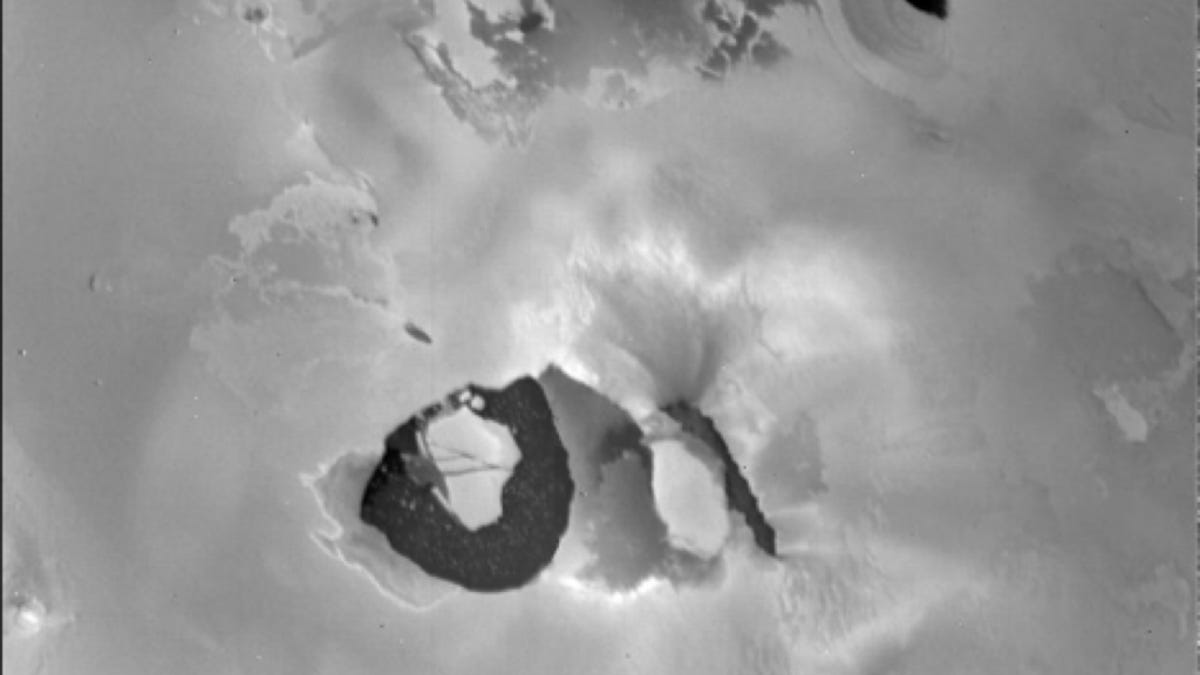Jupiter's lunar volcano could erupt this month
Loki is primed to blow in mid-September, a scientist predicts.

The volcano Loki on Jupiter's moon Io. Eruptive activity originated in the lower left area of the dark linear feature in the center. The U-shaped area is the "lava lake."
At any moment, a surge of molten lava is expected to erupt from a 126-mile-wide volcano named Loki onto the surface of Jupiter's innermost moon, Io. And if it does, us earthlings' ground-based telescopes will be able to marvel as the celestial body brightens and its toroidal clouds of plasma encircle Jupiter. Or that's what a leading Io scientist expects, anyway.
Based on more than 20 years of lunar observations, Julie Rathbun, senior scientist at Planetary Science Institute, says Loki's brightenings signal an on-schedule eruption that could be predicted approximately every 475 days. Rathbun presented her studies in a poster Tuesday at the European Planetary Science Congress' 2019 Joint Meeting in Geneva.
"Loki is the largest and most powerful volcano on Io, so bright in the infrared that we can detect it using telescopes on the Earth," Rathbun said in a release from the Europlanet Society. "If this behavior remains the same, Loki should erupt in September 2019, around the same time as the EPSC-DPS Joint Meeting 2019. We correctly predicted that the last eruption would occur in May of 2018."
In January, cameras aboard NASA's Juno spacecraft caught an extraordinary glimpse of a massive volcanic plume as it shot material off Io's surface, in what the space agency calls the "most volcanically active spot in the solar system."
Though Loki's enormous size has a stabilizing effect on its cycles, making it more predictable than many volcanoes, Rathbun remains cautious.
"You have to be careful because Loki is named after a trickster god and the volcano has not been known to behave itself," she said. "In the early 2000s, once the 540-day pattern was detected, Loki's behavior changed and did not exhibit periodic behavior again until about 2013."

